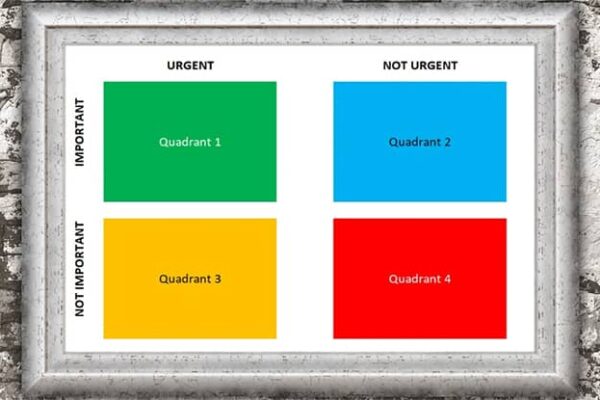Perfectionism is not just a desire to do everything well, but an obsessive need to bring any task to flawless completion, accompanied by harsh self-criticism. At first glance, this quality seems like an advantage: is it bad to want a perfect result? But the paradox is that the closer a perfectionist gets to their goal, […]
Lateral Thinking – The Art of Seeing What’s Hidden from Others
Imagine that all people are walking along the same path—logical, predictable, trodden by thousands of feet. Now imagine someone who turns aside, pushes through the thickets, and discovers not just a new path but an entirely unexplored world. This is the essence of lateral thinking—the ability to step beyond familiar patterns, see what is hidden […]
the Six Thinking Hats method: How Edward de Bono Taught the World to Think Differently
Imagine the following situation: there’s a heated debate in your team about a new project. Some are shouting, “It’s too risky!” Others passionately argue, “But it’s profitable!” Skeptics demand hard numbers, while some just have a gut feeling that “something’s off.” The result? Chaos, conflicts, and zero progress. It’s precisely for such scenarios that Edward […]
Creative Block: What to Do When It Seems You’ve Run Out of Ideas
Creative Block — a state familiar to anyone who has ever tried to create something new. It comes suddenly: yesterday, you effortlessly found solutions, generated ideas, and felt inspired, but today, you stare at a blank sheet or screen with a sense of utter emptiness. Thoughts seem frozen, every attempt to come up with something sparks […]
Analytical Thinking: How to Boost Your Brain in 30 Days
In a world where we are bombarded with streams of information daily and decisions need to be made quickly and accurately, analytical thinking becomes not just a useful skill—it is a key competitive advantage. It allows us not just to memorize facts but to understand interconnections, spot hidden patterns, and make well-considered decisions even in […]
The Feynman Technique and Other Ways to Learn Without Cramming
Imagine you need to learn a complex topic for an exam. The first thing that comes to mind is to start cramming: repeating the material over and over until it’s “imprinted” in your memory. But after just a couple of days, you realize with horror that you’ve forgotten almost everything. What’s the problem? Traditional cramming […]
Procrastination Is Not Laziness! The Real Reasons for Inaction
We’ve all put off important tasks at least once, finding a thousand reasons to do anything except what really needs to be done. “Now’s not the right time,” “I’ll do it tomorrow,” “I need to prepare first”—these familiar excuses hide something far more complex than mere laziness: procrastination. Unlike laziness, where a person simply doesn’t […]
Neurofeedback: An Innovative Way to Increase Concentration and Productivity
Neurofeedback is an innovative method based on the principle of brain feedback, which allows a person to learn to control their brain activity. The essence of the technology lies in the fact that, with the help of specialized equipment, such as electroencephalography (EEG), the brain receives real-time information about its functioning. It is like a […]
Creative Thinking: How to Go Beyond Templates and Stereotypes
Creative thinking is the ability to go beyond habitual patterns, find unconventional solutions, and see opportunities where others see only limitations. In the modern world, where changes occur at an incredible pace, the ability to think creatively is not just a useful skill but a necessity. It helps us adapt to new conditions, solve complex […]
The Psychology of Money: Why Wealth Begins in the Mind, Not in the Wallet
Money is not just numbers in a bank account or paper bills in a wallet. It is a powerful tool that reflects our inner attitude toward life, success, and ourselves. In reality, wealth does not begin with the amount of money we have, but with what we think about it. It is our mindset that […]
Psychological Tricks in Communication with People: Techniques that Always Work
Communication is not just an exchange of words; it is a powerful tool that helps open any doors, build relationships, and achieve goals. The ability to interact effectively with others is essential not only in personal life but also in the professional sphere. Every day, we encounter situations where we need to persuade, inspire, or […]
Eisenhower Matrix: How to Stop Wasting Time on Useless Things
In today’s world, where the flow of information and tasks seems endless, many of us struggle with the same problem: we spend too much time on activities that don’t bring real value. Social media, endless notifications, tasks that seem urgent but aren’t truly important—all these distractions pull us away from what genuinely matters.
Rational Thinking: How to Stop Acting on Autopilot
Rational thinking is the ability to think logically, objectively, and without excessive influence from emotions. It allows us to analyze information, weigh facts, and make thoughtful decisions, even in complex or stressful situations.
Idee Fixe: How to Distinguish a Healthy Goal from an Obsession?
An idee fixe refers to a persistent, obsessive thought or desire that dominates a person’s consciousness and becomes the central focus of their mind. This phenomenon is often tied to a specific goal, belief, or aspiration that takes such deep root in the psyche that it starts overshadowing all other aspects of life.
Strategic Thinking as a Psychological Resource of the Modern Personality
In the modern world, we face numerous challenges every day that transform our lives faster than ever before. Technological progress, globalization, constant information pressure, and social competition create an environment where individuals must adapt to new realities to remain competitive and maintain inner balance.














